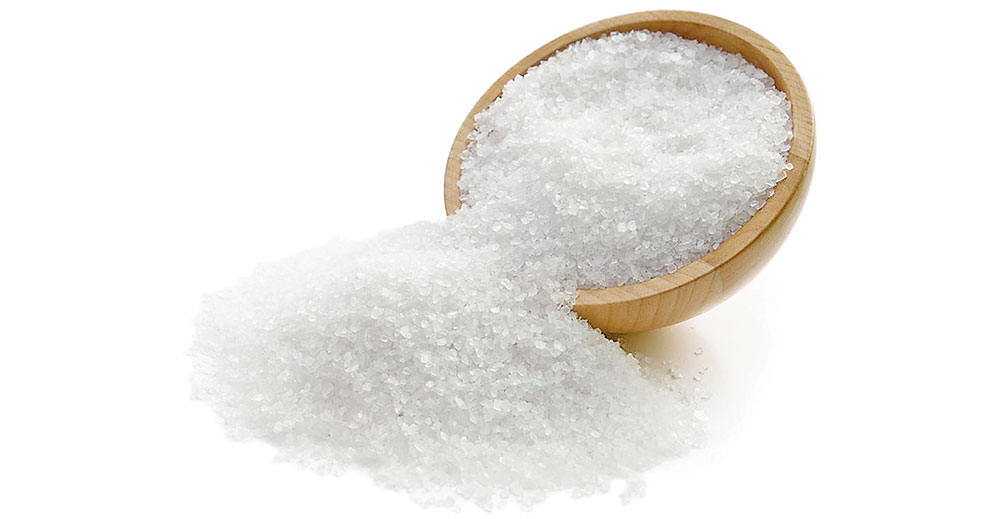Salt therapy – All you need to know
- 24 Feb - 01 Mar, 2024
Ever since keto made an advent, sugar has become the number one culprit of literally every health problem. While the negative impact it has on your health is true, not all of us have the resolve to say no to sugar. Morning donuts and after dinner ice cream runs are a part of our personality; a problem so deep-rooted that we came up with the saying ‘sugar doesn’t make you fat, it makes you happy’. While it is kind of true, let’s face some facts. In your 20’s your body can handle it, but come 30’s, your metabolism slows down and the effects on your body make themselves known. Hence to stay in your top form, it is essential to control your sugar intake. So here are some tips on how to control the sugar cravings and dealing with the unsatisfied sweet tooth.

Yes, we know, it sounds too good to be true that ACV is quite literally the solution to every problem. Be it weight loss, hair texture or boosting immunity. But it legit works. Add one or two tablespoons of apple cider vinegar to a large bottle of water and drinking it gradually throughout the day can help reduce sugar cravings. The daily ingestion of vinegar reduces blood sugar levels in healthy adults who are at risk of developing type 2 diabetes.
We all have the tendency to confuse boredom for hunger but it’s about time we put a lid on it. Taking meals at regular intervals is another obvious tip because here’s the thing: it works! Keeping to three meals a day with approximately two snacks in between will help you stay fully satisfied throughout the day and it ensures your day doesn’t revolve around food.
Research suggests that eating fruit in the afternoon triggers sugar cravings in comparison to taking fruit in the morning, which curbs them instead. That said, you should continue eating five portions of fruits and vegetables a day in an effort to maintain a healthy lifestyle.
One of the reasons why so many people end up eating unhealthy snacks is simply because they don’t consider taking the time to source healthier alternatives. Truth of the matter is that healthy snacks take about as much time to prepare as unhealthy snacks, unless you’re eating out of a box. So to keep track and control your snack consumption, it is a good idea to bulk prepare your healthy snacks over the weekend or find one day in the week to make yourself some wholesome munchies so that you can keep working your jaw without the guilt.
According to research, consuming a couple of tablespoons of lemon juice a day can reduce the rise of blood sugar levels by as much as eight to 12 per cent. Lemon juice is not hard to consume at all. You could take lemon water to jump start your day or add a couple of tablespoons to your daily salads for a solid punch of flavour to keep it interesting (and edible).
Eating a healthy dose of protein, such as red meat, organic chicken and fish, in addition to healthy fats including avocado and coconut oil can help keep your sugar cravings at bay. As per research, late-adolescent girls were less likely to experience post-meal cravings for sweet foods if they ate breakfasts that contained high protein content.
Taking approximately 500mg a night help moderate your blood glucose levels, according to research. Magnesium can also be naturally found in a number of foods including almonds, black beans, cashews and spinach.
Fibre is known to help aid with digestion. However, that’s not its only benefit. Not only is fibre essential for good digestion, but it helps you stay satiated after each meal, which prevents you from impulsively reaching for a sweet treat. Enjoy leafy green vegetables, whole grains (such as quinoa, brown rice and millet) and low-GI veggies such as pumpkin and sweet potato.
Sugar cravings are often connected with overall stress levels, which is why practicing mindfulness could prove extremely beneficial. That’s how the term ‘stress eating’ came into existence and yes, the urges are real. Take some time out of your day to go for a walk, read a book or simply rest for greater peace of mind.
The majority of people in the working world are likely familiar with the mid-afternoon slump and in truthfully, most of us live for snack times. When this occurs, opt for a snack that’s high in protein to give your energy levels a much-needed boost as opposed to a sugar-filled treat.

• The sugar in your diet affects the amount of sugar in your bloodstream; that high blood sugar levels set up a molecular domino effect called glycation. Say what? That's just a fancy term for a process that can hinder the repair of your skin's collagen, the protein that keeps it looking plump.
• Added sugars are simple carbohydrates. This means they're digested fast and enter your bloodstream quickly, providing that familiar rush. But once that shot of sugar is metabolised, you're in for a crash. When you eat foods high in protein and healthy fat instead, such as a handful of almonds, they'll supply you with a steadier stream of energy that lasts longer.
• Replacing refined carbs and sugary foods in your diet with healthy fats help keep your insulin stable so fewer calories get stored as fat. As a result, hunger decreases, metabolism speeds up, and you can lose weight with less struggle.
COMMENTS